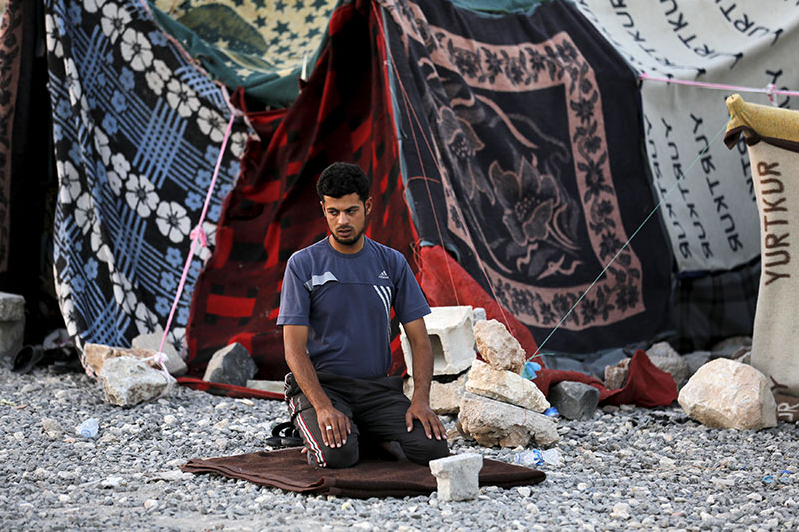
A Kurdish church leader has shared how his elderly father tried to kill him after learning he had converted from Islam to Christianity, and how he was routinely tortured and threatened by Muslims while living in makeshift camps in northern France.
According to World Watch Monitor, the man converted to Christianity while living in Kurdistan, outraging his devout Muslim family. He was arrested and beaten by police for preaching in the streets, and twice received letters warning him that he would be killed if he did not return to Islam.
"In the mosque the imams talked about me, and my father, and my little brother, who became a Christian too... The imam talked about us - 'they are kafir [unbelievers], they have to die,' from the stage, into the mosque microphone. My father [a Muslim] was filled with shame," he said. "They were taught bad things about us in the mosque: 'The Christians are kafir.' Of course, they [also] say you are slaves to Israel, to the American people."
While five of his close relatives also became Christians, other members of his family became even more dedicated to Islam - in fact, one of his brothers supported ISIS, which, he said, has "definitely, definitely" created sleeper cells in Kurdistan.
One night, his elderly father entered his room with knife and attempted to kill him. A short time later, several men entered his home, whom he described as having long beards and belonging to IS.
While hiding in his room, he heard his mother lie for him, saying he was not at home, and escaped through the back door without the opportunity to say goodbye to her.
The Christian man fled, and eventually made his way through Europe from Greece, through Macedonia, Serbia and Croatia. For nine months, he lived in camps outside the French cities of Calais and Dunkirk, where Kurdish Muslims antagonized him.
"In Calais, the smugglers [saw] my cross [round my neck], and said: 'You are Kurdish and you are a Christian? Shame on you,'" he recalled. "I said, 'Why? I'm in Europe, I'm free, I'm in a free country.' They said, 'No, you are not free, you are in the Jungle. The Jungle has Kurdish rule here - leave this camp.' The smugglers were from inside the camp, and were Kurdish. They said to me, 'We will tell the Algerians and Moroccans to kill you.''
He shared that in another camp, Muslims set fire to his tent. He said he eventually moved after one of the people-smugglers told him, "You're a Kurdish pastor? I've heard about you."
"He was really dangerous, like a gangster. I was really scared," he added.
The Christian currently lives in Britain, and told WWM that when he gets permission to work, he would like to be a missionary and lead a Kurdish church in the UK. His church in Kurdistan, which was made up of converts from Islam, was closed down by the authorities, but he said that he now feels safe in Britain.
Asked about how he felt about having to smuggle in illegally, he said: "Do you have another choice? No. What do you have to do? You have to get to [the] UK. With yourself alone? You cannot. You have to find one person to get you in the lorry. I know it's the wrong way, but what do you do?"
Several Christian organizations have reported that Christian refugees in European asylum centers have been harassed verbally or physically by their Muslim counterparts.
An October report compiled by six German nongovernmental organizations documented 200 cases of attacks, ranging from verbal threats to sexual assaults. The non-governmental organizations estimated as many as 40,000 Christian refugees have been affected. Due to fear of escalating the situation, only 17 percent of affected refugees contact the police and report the violence committed against them.
"The documented cases confirm that the situation of Christian refugees in German refugee shelters is still unbearable. As a minority they are discriminated against, beaten up by and receive death threats from Muslim refugees and partly by the Muslim staff (securities, interpreters, volunteers) on grounds of their religion," found the survey
The report noted that the latest numbers of persecuted refugees is most likely only the "tip of the iceberg" when it comes to religiously motivated attacks on Christians and Yazidis, estimating that there are high numbers of unreported cases as well.






